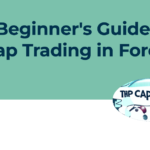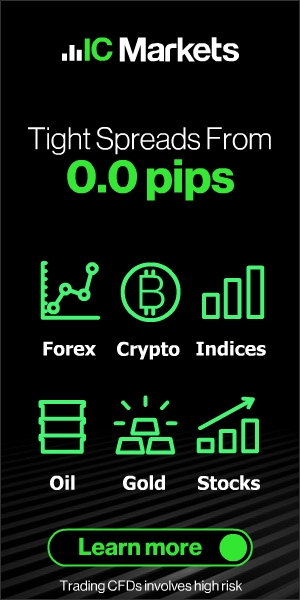
The Importance of Having a Risk Management Plan in Forex Trading
- Jonny Smith
- August 6, 2023
- Forex Trading For Beginners, Forex Trading Plan
- Best_forex_broker, ECN_Forex, forex, forex_brokers, Froex_Demo_Accounts
- 0 Comments
I. Introduction
Ah, Forex! The vast ocean of currency trading where dreams can either take flight or get dashed within moments. But did you know that behind most success stories lies not just a good strategy, but also a well-thought-out risk management plan? Let’s dive into this lesser-known but utterly crucial aspect of Forex trading.
II. The Nature of Forex Trading
The Forex market is, without doubt, the heavyweight champion of the financial world. Handling a mind-boggling $6.6 trillion daily, it’s a market that never sleeps. With its allure of high liquidity and 24-hour trading, many are drawn to it. But here’s the twist: with great power (or in this case, profit potential) comes great responsibility. And that’s where our hero, risk management, comes into play.
III. Understanding Risk in Forex
Forex isn’t just about riding waves; it’s also about dodging icebergs. Different types of risks lurk beneath:
- Market Risk: Ah, the infamous market volatility! Currency values can swing dramatically, leaving unprepared traders high and dry.
- Leverage Risk: Leveraging can amplify profits, but it can also magnify losses. A double-edged sword, indeed.
- Interest Rate Risk: When central banks decide to play with interest rates, currency values jive to the tune.
- Country and Liquidity Risk: Ever heard tales of currencies plummeting due to political unrest? That’s this risk in action.
And if you think these risks sound theoretical, think again. The internet is rife with tragic tales of trades that nosedived due to these unforeseen villains.
IV. Basics of a Risk Management Plan
Before you set sail, you need a map, right? Similarly, before you trade, you need a plan.
- Set Realistic Targets: Hope to turn $100 into $10,000 in a week? Might as well buy a lottery ticket. Realistic goals keep you grounded.
- Decide on Stop-loss and Take-profit Levels: This is your safety net. Determine in advance when you’ll exit a trade to minimize losses or lock in profits.
- Manage That Leverage: Remember the double-edged sword? Use leverage wisely, understanding its implications.
- Consistent Trade Sizes: Going all in can be a recipe for disaster. Decide on a trade size and stick to it.
V. Advanced Risk Management Techniques
Feeling a bit more adventurous? Once you’ve mastered the basics, consider these advanced strategies:
- Diversify Currency Pairs: Don’t put all your eggs in one currency basket. Diversification can spread risk.
- Hedging Strategies: This involves taking a position in the market that opposes your current one. It’s a bit like an insurance policy.
- Incorporate Options and Futures: These financial instruments can offer added layers of protection.
- Stay Updated on World Events: Geopolitical events, elections, economic indicators—all can influence the Forex market.
VI. The Psychological Aspect of Risk Management
Trading isn’t just numbers; it’s emotions. Fear, greed, hope—they all play a part.
- Emotional Intelligence: Recognizing your emotions and not letting them drive your trading decisions is key.
- Avoid Impulsiveness: Deep breaths. Every decision should be calculated, not reactive.
- Tools and Software: Consider tools that automatically enforce your risk management rules, preventing emotional trading.
And for a real treat, consider this: Joe and Sam both started with $10,000. Joe, ruled by emotions, lost half within a month. Sam, with his calm demeanor and solid risk management, saw a steady 10% growth. Who would you rather be?
VII. Real-life Examples of Successful Risk Management
There are numerous veterans in the Forex world who’ve weathered many a storm, thanks to their trusty shield of risk management. Interviews with these seasoned traders often reveal tales of close calls, where their risk management plan was their knight in shining armor.
VIII. The Consequences of Neglecting Risk Management
On the flip side, there are cautionary tales galore. Traders who ignored risk management have often seen their dreams shattered in moments. It’s not just about financial loss; the emotional and psychological toll can be devastating.
IX. Continual Learning and Adapting the Risk Management Plan
The Forex market is a living entity, ever-changing, ever-evolving. Staying updated with the latest strategies, tools, and economic conditions is crucial. And as you grow, so should your risk management plan.
X. Conclusion
To win in the Forex market, you don’t just need a good strategy; you need a stellar risk management plan. It’s your compass, your map, and most importantly, your safety net. So before you dive into the vast ocean of Forex, equip yourself with this essential tool.
XI. Additional Resources
For the enthusiastic souls craving more knowledge:
- Books: ‘The Essentials of Risk Management’ by Michel Crouhy, Dan Galai, and Robert Mark.
- Online Courses: ‘Forex Risk Management Strategies’ on Udemy.
- Tools: MetaTrader 4 and 5 come with excellent risk management features.
Happy trading, and may the odds (and a solid risk management plan) be ever in your favor!








